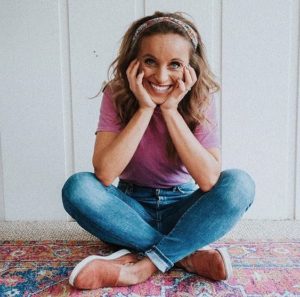Michelle Phan grew up in a poor home. Her father left when she was six, and her mother soon remarried and opened a nail salon. Michelle admired her mother’s work ethic and her desire to make others feel beautiful. While her mother encouraged her to become a doctor so that she could be successful and earn money, Michelle decided to follow her passions and go into art school. Her artistic abilities extended into cosmetics, and she began creating videos of her make-up routine to post on YouTube, becoming one of the first beauty vloggers. The videos she posted quickly began gaining popularity, and her hobby turned into something much larger. Once her first video hit 1 million views, she was accepted onto YouTube’s partner program.

Michelle’s YouTube career continued growing, and she moved to Los Angeles in 2008 to pursue it more fully. She partnered with the make-up brand Lancome, featuring them in her videos. Michelle even began her own make-up startup. She called her startup Ipsy, allowing people to subscribe to receive a monthly make-up bag She was very successful and was posting two videos a week, but the strain of the constant work was wearing down on her. She felt that she had lost an essential part of her channel by turning it into tutorial-generating machine. After her new business Em Cosmetics flopped, she turned her back on social media for a time, deciding to travel the world and figure out what she really wanted to do with her life. After a year, Michelle was ready to begin again. In 2017, Michelle left Ipsy and relaunched Em Cosmetics with a much smaller make-up line.
Michelle was able to reevaluate her life and pursue what she really loved. She became successful as her mother wanted her to, now her net worth is $50 million. Her mother was able to retire thanks to her daughter. I find this to be a beautiful story of creativity and following your passions.





 Young entrepreneur, Jordan Robbins, at the young age of 23 began her own business; REVLY Sport. Robbins, who graduated from La Costa Canyon High School in California found herself on the beach quite frequently. She recounts memories of her confidence being shattered by the surrounding beach bodies. Robbins had one goal: to push back against body shaming.
Young entrepreneur, Jordan Robbins, at the young age of 23 began her own business; REVLY Sport. Robbins, who graduated from La Costa Canyon High School in California found herself on the beach quite frequently. She recounts memories of her confidence being shattered by the surrounding beach bodies. Robbins had one goal: to push back against body shaming.



